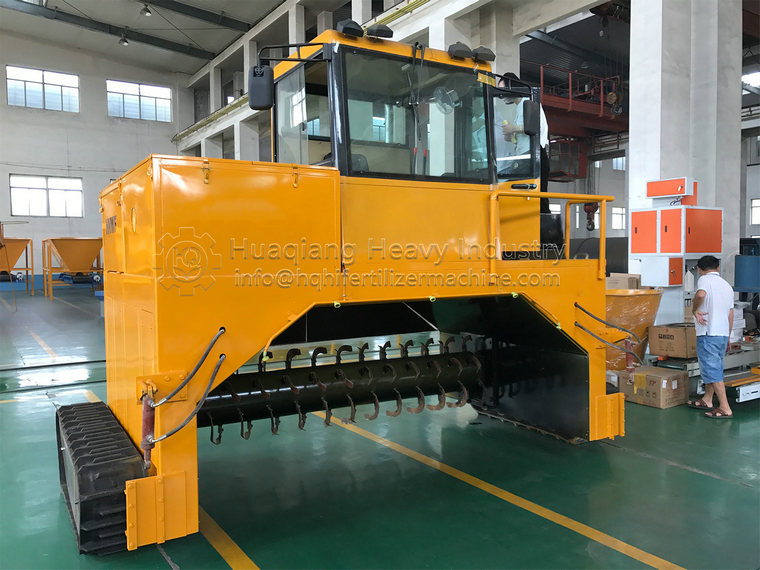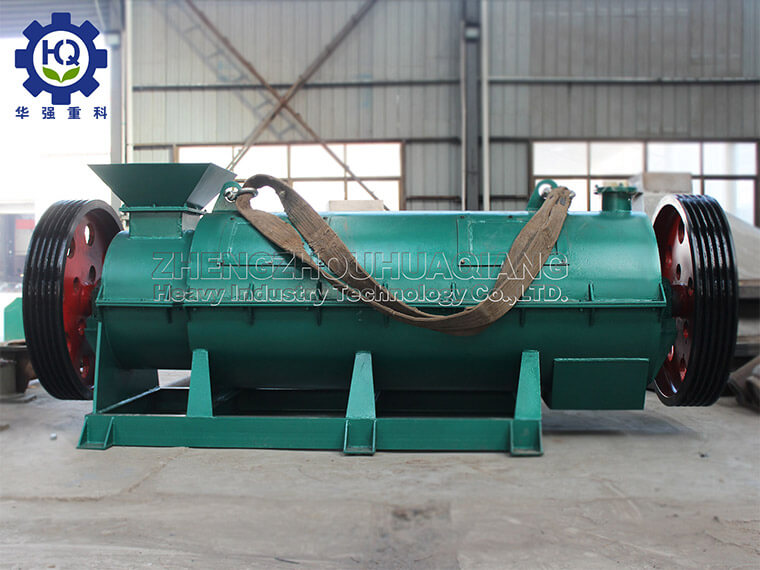How to ferment cow manure and process organic fertilizer with a self-propelled turner
The self-propelled turner plays a core role in the process of fermenting cow manure to process organic fertilizers. It can effectively promote aerobic fermentation process, improve fermentation efficiency and the quality of organic fertilizers. The following is a detailed explanation of how self-propelled turntables can be applied to cow manure fermentation:
Pre treatment of cow manure
Firstly, fresh cow manure needs to undergo certain pretreatment processes, such as solid-liquid separation (if the moisture content is too high), preliminary drying, and mixing with other auxiliary materials (such as straw, corn stalks, etc.), to adjust the C/N ratio and create conditions suitable for microbial growth.
Fermentation tank preparation
Next, spread the pre treated cow manure in the pre prepared fermentation tank. The fermentation tank can be a fixed concrete structure or a temporary ground platform, with a width generally designed to match the self-propelled flipping machine for mechanical operation.
Fermentation begins
After the cow manure is laid, add an appropriate amount of fermentation bacteria and start the fermentation process. These bacterial strains can decompose organic matter, release heat, raise the temperature of the fermentation pile, thereby killing potential pathogens and parasite eggs, while promoting the conversion of organic matter.
The function of self-propelled flipping machine
Flipping and ventilation: This is the most important task of a self-propelled flipping machine. Every once in a while (usually a few days), the flipping machine travels along the fermentation tank, flipping the cow manure at the bottom of the fermentation pile to the top and the cow manure at the top to the bottom. The purpose of doing this is to introduce fresh air, provide sufficient oxygen for microorganisms, maintain aerobic fermentation conditions, and also help achieve uniform distribution of temperature and humidity.
Monitoring temperature: During the fermentation process, self-propelled turntables are usually equipped with temperature sensors to monitor the temperature of the fermentation pile. If the temperature exceeds the set value, it indicates that the central area may be oxygen deficient or overheated during fermentation. At this time, it is necessary to promptly flip the pile to dissipate heat and prevent excessive fermentation from causing excessive decomposition of organic matter.
Post processing
After fermentation is completed, that is, when the temperature of the fermentation pile drops to near ambient temperature, the fermentation process is basically over. At this point, the mature organic fertilizer can be transferred to the storage area through a self-propelled turner for further aging and ripening to improve the stability of the fertilizer.
Finished product processing
Finally, organic fertilizers that have been fully fermented and matured can be processed into granular or other forms of organic fertilizer products through screening, granulation, drying, and other subsequent processes, which are convenient for packaging, storage, and application.
In short, the self-propelled turner plays a dynamic role in the fermentation process of cow manure, ensuring the effectiveness and controllability of the fermentation process through its functions such as turning, ventilation, and temperature control. It is an indispensable equipment for the industrial production of organic fertilizers.

.jpg)

.jpg)
.jpg)

.jpg)

